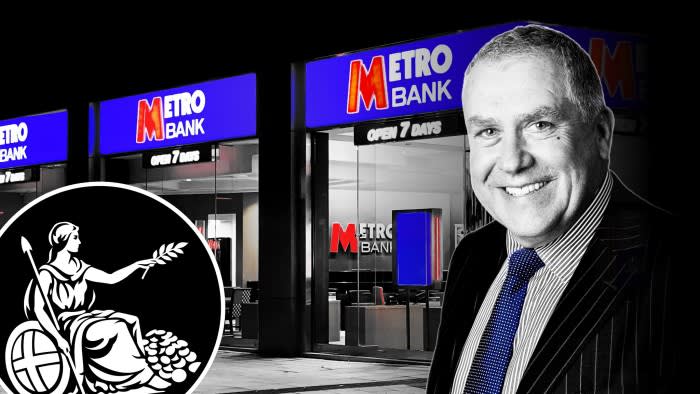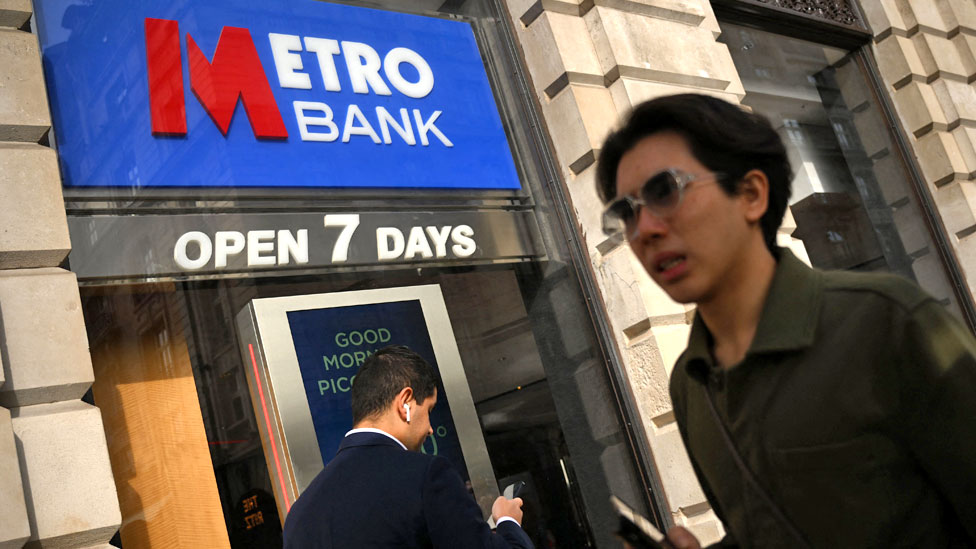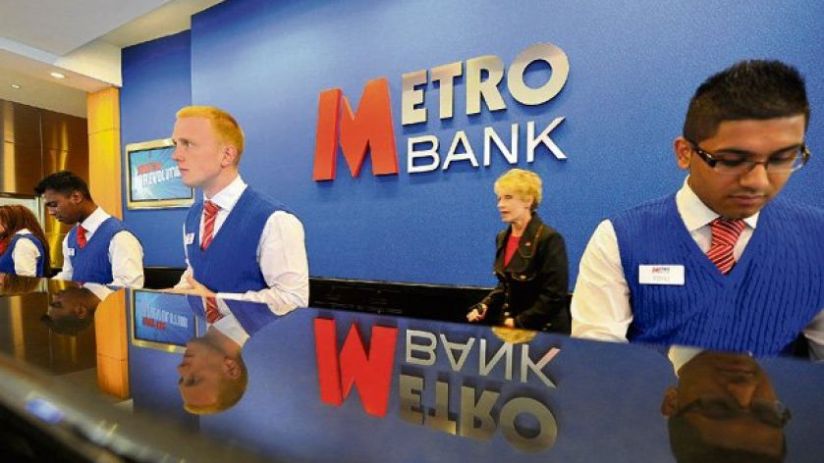Metro Bank Announces Vital Financial Deal to Stabilize Its Position Through Spaldy Investments, Led By Colombian Billionaire Investor Jaime Gilinski Bacal
Metro Bank Holdings Plc, a prominent British challenger bank, has recently unveiled a critical financial deal aimed at shoring up its precarious financial position in the face of mounting challenges, including a sharp decline in share prices and regulatory setbacks.

Metro Bank Holdings Plc, a prominent British challenger bank tackling financial stability, has secured a significant £925 million ($1.1 billion) financing package.
The financial agreement, revealed on Sunday, includes a substantial £325 million capital injection combined with a £600 million debt refinancing effort; the same is spearheaded by Spaldy Investments, led by Colombian billionaire investor Jaime Gilinski Bacal, represents a critical moment in the bank’s recent history.

Spaldy Investments Assumes Control
Spaldy Investments Limited, Metro Bank’s largest shareholder, has not only played a crucial role in this rescue mission by contributing £102 million but is also poised to emerge as the controlling shareholder of Metro Bank upon the successful completion of the transaction.
The development implies that Spaldy Investments will hold approximately 53% of the shareholding, signifying a major shift in the bank’s ownership structure.
Challenges Leading to the Rescue
Metro Bank’s recent financial woes stem from a series of setbacks, including a sharp decline in its share price, which fell significantly over the past six months, shedding nearly two-thirds of its value.
The precipitous drop has resulted in the bank’s market capitalization shrinking to less than £100 million, a stark contrast to the £3.5 billion valuation it enjoyed at its peak five years ago.
One of the bank’s major hurdles involved regulators’ refusal to approve its request to lower the capital requirements attached to its mortgage business, which resulted in worsening the need for financial intervention to stabilize the bank’s balance sheet.

Metro Bank’s Strategic Plan
Metro Bank’s CEO, Daniel Frumkin, expressed optimism regarding the announced deal, stating that it marks a new chapter for the bank and will facilitate continued profitable growth in the coming years.
Despite the recent challenges, Metro Bank has reported a statutory profit after tax in Q3 2023 and continues to exhibit positive momentum toward its goal of becoming the UK’s leading community bank.
Frumkin highlighted the bank’s strong franchise, underpinned by loyal customers and dedicated employees, also signalling the bank’s commitment to evolving its offerings to meet customer expectations in both digital and physical banking services.
Jaime Gilinski Bacal, founder of Spaldy Investments Limited, emphasized his belief in the importance of providing physical and digital banking services supported by exceptional customer service and maintained the announced package as a means to facilitate the bank’s growth and build upon the groundwork laid over the past three years.
Metro Bank’s Journey
Metro Bank, established in 2010, positioned itself as a challenger to traditional lenders by offering customer-centric features such as seven-day-a-week banking and even providing amenities like water bowls and dog biscuits for customers’ pets.
Metro Bank has steadily expanded its presence with 76 branches across England and Wales; in July, the bank announced its plans to open 11 additional branches in the north of England between 2024 and 2025.

Obstacles Along the Way
Despite its early success, Metro Bank faced significant challenges, including an accounting scandal in 2019 that led to the departure of key executives, including founder Vernon Hill.
In the aftermath, the bank struggled to achieve sustained profitability, with regulatory setbacks, such as the recent rejection of its request to use an internal rating system for valuing mortgages and assets, added to its difficulties; these factors, coupled with historically low interest rates, presented significant challenges in generating profits.
The Share Price Plunge
The share price of Metro Bank plummeted as a result of these challenges; what further complicated the matter was The Bank of England’s decision to deny the use of an internal rating system, thus contributing to a decline in share value.
Reports of the bank’s intention to raise funds and possibly sell mortgages further spooked investors, leading to a sharp drop in share prices, with declines of up to 30% recorded on a single day; the tumultuous period saw Metro Bank’s market capitalization dwindle to less than £100 million, a stark contrast to its £3.5 billion valuation at its peak.
Regulatory Approval and Industry Response
The Prudential Regulation Authority (PRA) has commended Metro Bank’s efforts to strengthen its capital position following the share price downturn and the need for a £600 million balance sheet boost; the PRA has granted approval for these measures.
Major UK banks, including NatWest, Santander, and Lloyds Banking Group, contemplated acquiring Metro Bank assets, while JPMorgan Chase & Co. and HSBC opted not to pursue bids. HSBC, however, recently acquired the UK operations of Silicon Valley Bank, aligning with its strategic objectives.

Global Fintech Landscape and Regulatory Considerations
Simultaneously, the UK initiated the Fintech Growth Fund to solidify its position as a global fintech hub, addressing concerns about barriers faced by fintech entrepreneurs.
In the US, regulatory interventions, such as the proposed reduction of late fees by the US Consumer Financial Protection Bureau, are under consideration to alleviate financial burdens.
Safety of Customer Funds
Despite these challenges, Metro Bank remains operational and does not face any immediate threat.
The Financial Services Compensation Scheme safeguards customer deposits up to £85,000, assuring depositors that their funds are protected even in times of bank distress; the coverage extends to the vast majority of Metro Bank’s £15.5 billion in customer deposits.
Ownership Landscape
Metro Bank is a publicly listed company on the London Stock Exchange, allowing the public to become shareholders in the business.
Spaldy Investments, owned by Colombian billionaire Jaime Gilinski Bacal, holds the largest share of Metro Bank at 9%. Gilinski Bacal, who is known for building one of the largest banking empires in Latin America, has played a pivotal role in the bank’s recent rescue efforts.
The Last Bit, The last few months have not been great for the banking sector; however, Metro Bank’s financial resurgence, marked by a strategic deal comprising a substantial capital raise and debt refinancing, represents a pivotal moment in the bank’s history and a boost to the banking sector.




